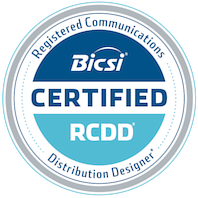Cloud Phone Systems vs VoIP
For all intents and purposes, cloud phone systems and Voice Over Internet Protocol (VoIP) systems pretty much provide you with the same phone system functionality, and they can be considered to be interchangeable terms. With that being said, it’s still worthwhile to take a close look at each one of these terms to see what is entailed, so that any subtle differences can be highlighted and understood.
Voice Over Internet Protocol (VoIP)
A Private Branch Exchange (PBX) is a hardware system that manages all the routing and switching of phone calls between a telephone network and any business location. Long ago, a PBX was actually a living, breathing person, i.e. a switchboard operator like you might see in a movie from early 20th century times. In fact, its name was derived from the way operators would have to switch several different telephone lines in order to connect callers with the parties they were trying to reach.
VoIP services were developed in an effort to completely replace analog PBX systems that functioned on the technology of Plain Old Telephone Service (POTS). While both analog and digital PBX phone systems have become tremendously popular during the twentieth century and beyond, much of the physical hardware and the proprietary wiring needed to use a PBX system has become more or less obsolete.
VoIP does away with the need for this kind of hardware and wiring, since it’s driven totally by a local computer network and its Internet connection, with those two components already being in place. The features that were at one time exclusive to PBX systems and relatively expensive to budget, are now all features that are readily accessible through Voice Over Internet Protocol, and at a much more affordable rate. These features include many of the things we’re all very familiar with, such as multi-party conferencing, phone line queues, and auto attendants.
VoIP took over these features as well as a number of others, improved upon them, and then made them much more accessible and more cost-effective to customers desiring those kinds of services. VoIP has the capability of reducing all kinds of costs associated with maintenance and repairs, equipment, and phone charges, all while making requests for upgrades and support much simpler. VoIP has the effect of leveling the playing field for small businesses, so that they can compete with large corporations and have the same opportunity for growth and success.
Cloud phone systems
The term cloud systems is often used interchangeably with Voice Over IP, and it’s very common to see these two terms in the same sentence and referring to the same type of service. When you talk about a service being on the cloud, it’s another way of referencing how a VoIP provider delivers services which allow for interaction with users. All cloud phone systems are an extension of hosted services, in the sense that the VoIP provider actually maintains and owns all the hardware associated with the phone system.
The cloud is merely a way to mentally visualize how your information is being stored, as opposed to physical hardware that used to be stored in a closet on your premises. Cloud phone systems will incorporate Voice Over Internet Protocol into Unified Communications, which is a term that references the ability or devices having an Internet connection to potentially be converted into telephones. Some examples of this are smartphones, tablets, laptops, and web phones.
The communication capabilities available through Unified Communications make it possible to dial extensions, manage voicemail, and make video conference calls. Cloud systems are able to provide the basis for communicating with a collaborative team using features such as click-to-call functionality, call analytics, and instant messaging. Many of today’s cloud phone systems also include a number of standard PBX features, although some of the most advanced systems have now totally abandoned the desk phone concept altogether.
Contact Us
The professional specialists at Telco Data can help provide you with communication services that will thrust your business into the 21st century, and allow you to compete with all the major players in your industry. Whenever you need such services as cell signal boosting, Internet data and voice services, structured cabling solutions, or business VoIP phone systems, we are the company you should contact first. Get in touch with one of our friendly representatives as soon as possible, so we can begin the process of modernizing your business, and putting you on the soundest possible footing for communications in the modern business world.
FAQs About Cloud Phone Systems and VoIP
Do I need a computer to make VoIP phone calls?
No, it is not necessary to have a computer to make a VoIP phone call. However, it will be necessary to have a broadband Internet connection.
What can a VoIP phone do that an ordinary landline phone cannot?
For one thing, a broadband phone service will allow you to save somewhere between 50% and 90% on your monthly phone bill. VoIP providers can also deliver a great many features which are included in that monthly fee, such as caller ID, conference calling, call waiting, and voicemail. Many VoIP providers will also offer unlimited calls in their respective plans, and that can save even more money for customers. Additionally, most providers allow unlimited call to subscribers using the same service, which permits you to communicate with those users at no additional cost for as long as you want to.
Are VoIP calls secure?
There have been rare cases of security breaches over VoIP phone lines, but these have been few and far between. You will also have the option of encrypting your phone calls as a VoIP subscriber, and that will completely eliminate the possibility of any security breaches in the future. If your business is one that relies on keeping business data protected during communications, encryption is way to go.
Can I use my existing handsets with a cloud phone system?
Yes, it is possible to use your current handsets with a cloud-based system. However, if you do so, you’ll be missing out on many of the advanced features which are included with cloud-based telephones. If you are making the switch to a cloud-based phone system, it would definitely be to your advantage to go all the way and use the more capable telephones.







